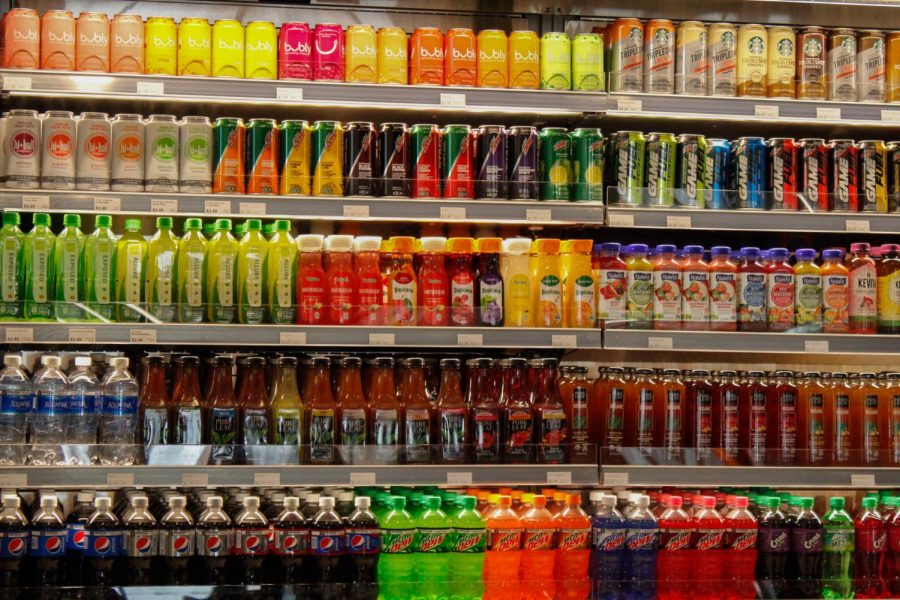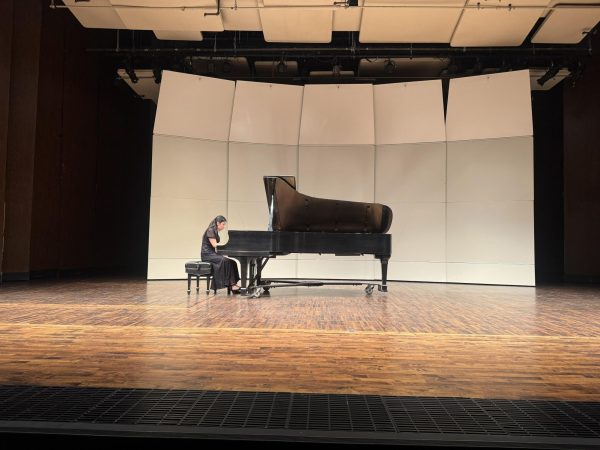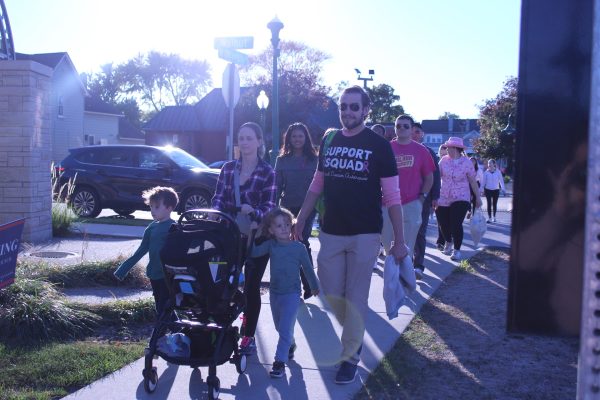Campus increases sustainability efforts in OC, Hillcrest and Vandenberg
The Oakland Center is working to implement more sustainable, eco-friendly packaging.
The Oakland Center (OC), and the cafeterias in Hillcrest and Vandenberg halls are working to improve campus sustainability. Measures have been taken to implement new packaging, biodegradable utensils (coming soon) and rebranded waste and recycling in the OC — and that’s only the beginning.
“Sustainability will always be at the forefront of what we do,” said Chris Reed, director of the OC.
Reed mentioned the OC has already eliminated styrofoam packaging from the Pioneer Food Court, with the help of Chartwells, OU’s campus food service provider. Chick-fil-A and Panda Express have seen new, paper-based alternatives to previously styrofoam products.
Utensil dispensers are also on their way in the Pioneer Food Court, as opposed to individually wrapped utensil packages. Rebranded recycling and waste has allowed for colored labels (blue for recycling and black for landfill), ensuring guests know how to dispose of their used products.
“Students want to make better choices,” said Erin Meyers, an associate professor of communication and member of the Faculty, Student, Staff Alliance for Climate and Environment (FSSACE) on campus. “I was excited to find out from [Reed] that initiatives are in progress.”
Not only are changes being implemented in the OC, but in the Hillcrest and Vandenberg cafeterias as well. According to Mark McCormic, resident district manager at Chartwells, they have installed fryer oil holding tanks in the OC and residence halls to “eliminate thousands of large, plastic drums of oil from the landfill along with the cardboard boxes they come in.”
Chartwells also moved to a reusable, eco-friendly takeout container in residence halls. McCormic said this transition has eliminated over 50,000 takeout containers.
The push for sustainability won’t stop here, as more motions are in progress. According to Reed, the OC is working to incorporate visual examples of acceptable recycling and landfill items for proper disposal, as well as create an additional food waste location. Reed anticipates these changes to be up-and-running by fall 2020.
Additional initiatives on the way include hand dryers, low to zero waste events and meetings and a reduction in paper products for marketing purposes, such as posters and banners. Reduction of paper advertising could also lead to less ink and printer usage.
“The OC is very concerned about the environment and impact we have locally, nationally and globally,” Reed said. “We work closely and collaboratively with our public-private partners here at the Oakland Center on improving our sustainability efforts and making positive changes for the environment that benefit students, faculty, staff, our P3 partners, the OC and Oakland University.”
Reed is hopeful that student knowledge of active sustainability measures being taken in the OC and other campus locations will make them more comfortable when participating in events or purchasing items.
“When students, faculty and staff hear about what is being done, there is quite often surprise,” he said. “[Guests] then have a positive outlook on what is being done to improve sustainability in the Oakland Center.
“We will always be looking for ways to improve our sustainability efforts, while not having a negative impact on the services provided. We are open to feedback, new ideas and ways to improve.”






Jessica Payne • Feb 19, 2020 at 5:48 PM
I like that they are open to new ideas…how about a discount if I bring my own Tupperware? That way I can re-heat it later. Thanks for the news.
DeVonna Snowden • Feb 19, 2020 at 1:17 PM
Great article, well written and great quotes from different sources!